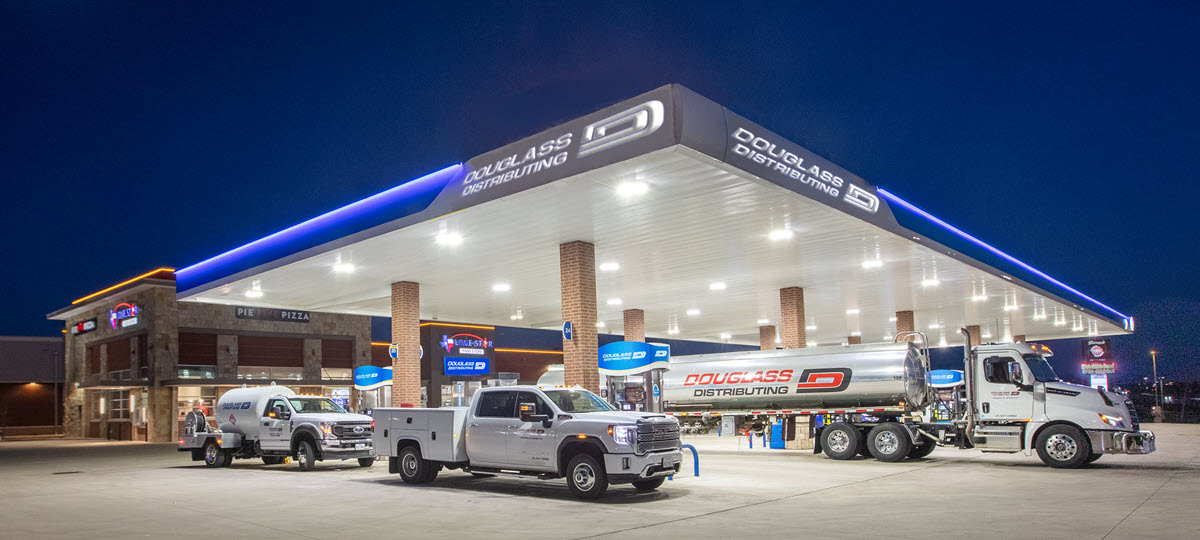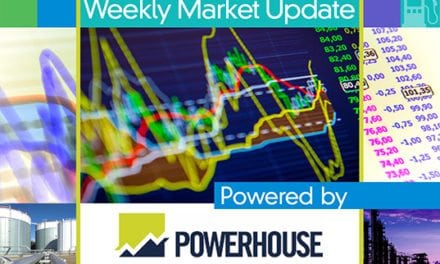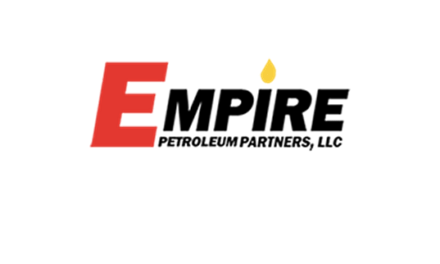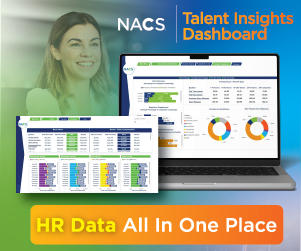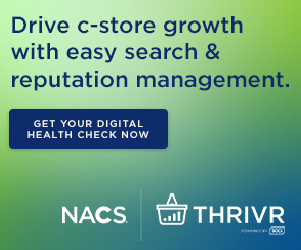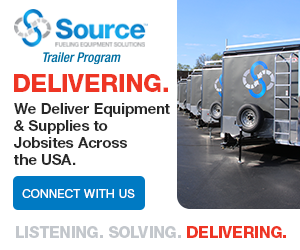The industry icon has spent his life fueling the vehicles of North Texas, from pumping gas and wiping windshields to growing a strong wholesale and retail operation.
By Keith Reid
[Note: Since this article went to print Douglass announced the sale of Douglass Distributing’s wholesale businesses to Offen Petroleum and its Lone Star Food Stores to Casey’s. This was known as a possibility when the article was being developed, but the goal was to illustrate Bill Douglass’ remarkable career and explore his philosophy on building a diverse, effective operation through the willingness to explore new opportunities and be in front of the curve even with the potential of failure in the process.]
In 1947 Humble Oil (later known as Exxon) established a railroad bulk plant in Sherman, Texas. On July 1, 1981, Bill Douglass bought this Exxon consignee, including the local transport division, tank wagon division, lubricants division, and the tires, batteries & accessories (TBA) division. Douglass Distributing was born.
Douglass Distributing currently distributes more than 200,000,000 gallons of fuel annually. Its carrier group includes 21 trucks that run 24 hours a day, every day of the year. Its retail division owns and operates 23 Lone Star co-branded sites and employs over 300 team members.
Bill Douglass remains managing partner. Bill’s son Brad Douglass is CEO of Douglass Distributing and its wholesale operations. His daughter Diane McCarty is CEO of Douglass Distributing Retail, the convenience store operations.
At 87, and recently remarried, Bill, a longtime leader in the industry at large, is considering retirement. We discussed with him how he built up and maintains such a diverse and successful operation.
FMN: Describe how you entered the fuel world.
I grew up in a little town with no stoplight, one grocery store, one Humble service station in the middle and one church. I was the church caretaker and the 22 acres it sat on, and the grave digger, where I used a shovel. And then in high school I got recruited by the Humble station to pump gas, lube cars—that type of stuff.
This guy came in all the time with a nice coat, tie and hat. And he drove a company car. His name was Connie Conrad, and he was the Humble rep. So, I said, “Connie, how do I get a job like yours?” He said, “Well, kid, you got to do two things. You got to go to college and get your military out of the way.” In those days we were all subject to the draft. He gave me his card and a name to call when I got out. So, I did that. After my time as an officer in the Marines ended in 1961 I called the number, and I got interviewed by Humble’s regional manager.
He was a retired colonel from the Army, and he was my final interview. Now, bear in mind this guy has hundreds of people working for him, right? And all he wanted to talk about was my evaluation of how business operates versus the military. After our discussion he hired me. They put me on their fast track and moved me nine times.
[Editor’s note: Humble changed its brand to Exxon in 1973.]
Finally, in 1981 they wanted me to go to go to Riyadh, Saudi Arabia. In those days, if you attempted to take your wife she wasn’t allowed to drive a car or go on the street without an escort, which didn’t work for us, and I chose to change my occupation at that point and bought the Exxon consignee in Sherman, Texas.
FMN: You made the transition from being a fuels wholesaler initially to eventually a convenience retailer. How did that work out?
As a wholesaler I had all these dealers that I developed. And we still have 175 dealers we support today. What I did was I would buy the stores when they would go bankrupt or retire. There wasn’t much of a market for two-pump stores in the old days. So, I would be the fallback position. And then I would convert them to convenience stores by remodeling and also expanding the fuel offer. That ran into the 1990s when those opportunities dried up, so you were building your own.
FMN: What is the primary way you go to market with your convenience brand?
Coming from the traditional petroleum side, we have concentrated on the customer experience at the site more than the specific store offers—not that we haven’t put a lot of effort into those areas as well.
For example, we put cash acceptors in at our pumps. So, we have cash acceptors and a terrific cash business while the industry has been worried about credit fees.
We always worked to have big pumps in our tanks so that when people come in, and eight people are using unleaded at one time, there’s no loss in pressure. We are delivering gasoline at the maximum rate permitted by law so that there’s no delay.
We put 1000 watt lights up in the days when people were putting in 400 watt lights. We wanted our sites to look like a lighthouse at night and feel safe. We use floor-to-ceiling windows so customers could look in and see that it was safe. And sliding glass doors that were pure glass, no frames, to make entering as seamless and as easy and attractive as possible.
We tried TVs at every table in our restaurants. And before cell phones we put in payphones. And when the cellphones came, we just gave you a jack to charge your phone and make calls or watch video on your phones.
We’ve tried a lot of things. Some worked better than others.
FMN: Your Lone Star sites are also known for the restroom experience.
We call them Royal Restrooms. When we were kids, service stations were the only restrooms when you traveled. And they were deplorable. We’ve always focused on the restrooms to offer a different experience. When I found out that Las Vegas had toilets with automatic seat covers, I said, we’re going to put that in our stores.
We put in all automatic and touch-free restrooms that were sanitary. Tile floors and walls. Booths as well as big urinals that go all the way to the floor, which adds to the cleanliness. For the booths we built single stalls, and the walls went to the ceiling so that you have some sense of privacy. You don’t have to see, hear or smell your neighbor.
FMN: DEF is an interesting product for the industry. Your operation takes it to another level.
We manufacture DEF, and that’s gotten to be the most profitable thing we do. When it started, supply was limited, and we couldn’t get it. So, we contacted a friend of ours in Houston who had a packaging line, and he was closing out his business. We bought his line and brought it up here and said we’re going to bring in bulk DEF and package it. And we were so successful at it that Old World Industries came to us and said we want you to package for us. And that worked out so well we went to two shifts, and then a second production line. And now we run 24 hours. And then they closed their Fort Worth plant, and we took that business. We blend and package for them and we fill about 20 trucks a day.
FMN: Describe your lubes and commercial fuels business.
It had been relatively static. We were ExxonMobil for 38 years, but they limited our territory to a few counties in Texas. They offered us a five-year contract last year, and they said you have to drop your other lines. Well, we had to have other lines to meet our customers’ needs in Dallas or Fort Worth or any place here in North Texas. We said we can’t do that—thanks for the memories. So we signed up with Petro Canada, and they have been a fantastic partner.
However, by limiting us to a million-gallon distributorship, we couldn’t live on lubes and we had to look at other ways to make money. So we went big into selling petroleum products. We supply the city of Fort Worth, Dallas and the school districts. We’re big into bid business because we’ve got a big fleet of trucks. We deliver to our stores and our customer stores and the cities and counties. And we’re a common carrier, like in Oklahoma, because we have an Oklahoma terminal, but we don’t have stores up there in Oklahoma. That’s essentially how it grew.
FMN: You do a range of propane business. Texas is a huge state and there are a lot of places that will never see a natural gas line. Describe how you succeed in the home heating market.
It’s a good business. It’s essentially what the old heating oil business was in the Northeast. I should know, I was the oil heat manager at Philadelphia in my former [Exxon] life.
It’s like a utility with your responsibilities. If you don’t let them run out, they stay with you forever, and we’ve never let them run out. We bought special equipment to deliver during ice storms. And everybody else shuts down.
FMN: What is Douglas Distributing doing on the EV and biofuels front?
We have biofuel in our diesel, both retail and wholesale, and we have electric chargers. But we can’t afford to put in the high-powered fast chargers. In Texas, the public utility commission has its demand charge rate based on your highest usage at any time in the past 30 days. With those, our stores would be paying a minimum of $40,000 a month for the electric bill.
FMN: You have so many different significant profit centers. How do you make sure each of these units is operating at full efficiency and execution?
First, you bring people up through the ranks that are strong enough to run them. And most importantly, you don’t need a manager, you need a leader. We separate our companies. It’s Douglas Distributing, but operationally it’s Douglass Distributing Fleet. And then Douglass Distributing Retail. We have Douglass Distributing Propane. We manage those through leadership. Great leaders have great organizations, great managers have efficient organizations. They’re very different skill levels. Sometimes you don’t have a choice but to go with a manager, but leadership is really the key.


